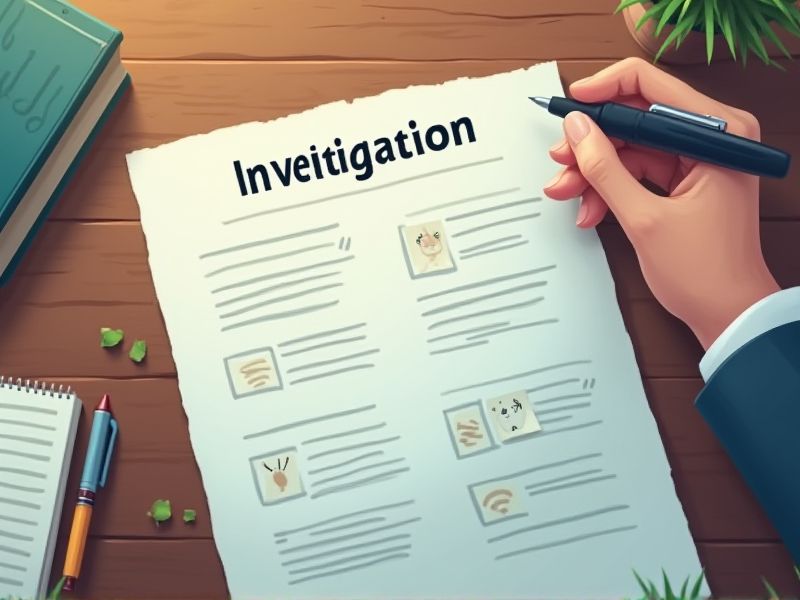
Cyber crime investigators often handle complex digital forensic cases, requiring a deep understanding of various technologies and methodologies. Certifications provide standardized validation of their skills and knowledge, crucial for effectively tackling cyber threats. Employers and clients seek certified professionals to ensure a reliable and competent response to digital incidents. Here are some key certifications necessary for aspiring cyber crime investigators.
Certified Cyber Crime Investigator (CCI)
With the increase in sophisticated cyber threats, a Certified Cyber Crime Investigator (CCI) possesses specialized skills to effectively identify and analyze these threats. Certification provides standardized training, ensuring that investigators are well-versed in current technologies and methodologies. As cybercriminals continue to adapt, CCIs can better understand and predict their behaviors, crucial to preventing future incidents. Organizations facing complex digital attacks rely on certified professionals for credible and efficient resolution.
Certified Computer Forensics Examiner (CCFE)
A Certified Computer Forensics Examiner (CCFE) is crucial for a Cyber Crime Investigator due to the technical expertise required to analyze digital evidence. The designation ensures that the examiner possesses validated skills to recover, preserve, and present electronic data correctly, which is pivotal in legal proceedings. The CCFE certification provides a standardized framework that enhances the credibility and reliability of the investigation process. Cybercrime cases often involve complex technical challenges that necessitate specialized knowledge, which certified examiners are equipped to handle efficiently.
Certified Forensic Computer Examiner (CFCE)
The growing complexity of cyber crimes demands specialized skills, and a Certified Forensic Computer Examiner (CFCE) provides the necessary expertise in digital investigations. CFCE certification ensures investigators have undergone rigorous training, equipping them with the ability to retrieve and analyze digital evidence properly. Accurate evidence handling is crucial in legal proceedings, and CFCE-endorsed investigators reduce the risk of compromising critical data. With a CFCE, investigators bring greater credibility and reliability to cyber crime cases, which is essential for successful prosecutions.
GIAC Certified Forensic Analyst (GCFA)
Cybercrime investigators require the GIAC Certified Forensic Analyst (GCFA) certification to gain expert knowledge in digital forensics and incident response. This certification equips them with the skills to analyze advanced persistent threats and complex security incidents effectively. Possessing the GCFA credential validates an investigator's ability to preserve and interpret electronic evidence, crucial for building a strong case. Certified investigators are often better prepared to navigate modern digital environments, enhancing their capability to combat cybercriminal activities.
GIAC Certified Forensic Examiner (GCFE)
Cybercrime investigators require the GCFE certification because it provides specialized knowledge in digital forensics, which is crucial for analyzing data and uncovering evidence. The certification ensures professionals can effectively recover and examine data from various platforms, essential in building legal cases. GCFE certification is recognized globally, which enhances credibility when collaborating across different jurisdictions. Expertise in forensic tools and methodologies obtained through the certification helps streamline investigations, resulting in faster case resolutions.
Certified Digital Forensics Examiner (CDFE)
Cybercrime investigators increasingly rely on Certified Digital Forensics Examiners due to their specialized skills in recovering and analyzing digital evidence. The CDFE certification ensures an investigator is equipped with the latest techniques to identify and trace cyber threats accurately. With the rising complexity of cyber threats, the unique expertise of a CDFE aids in constructing an irrefutable chain of evidence. Employers and law enforcement agencies trust CDFEs for reliable and efficient forensic examination, crucial for legal proceedings and cybersecurity policy formulation.
EnCase Certified Examiner (EnCE)
The EnCase Certified Examiner (EnCE) credential equips cyber crime investigators with proven proficiency in digital forensic methodologies, which enhances the accuracy of evidence collection. Holding an EnCE certification signifies expertise in using EnCase software, a critical tool in forensic investigation that ensures comprehensive data analysis. By attaining EnCE status, investigators boost their credibility in legal settings, thereby strengthening the admissibility of digital evidence in court. Organizations employing EnCE-certified professionals benefit from heightened investigative efficiencies, reducing the time and resources required to resolve cyber crime incidents.
Certified Fraud Examiner (CFE)
The rise in cybercrime has increased the complexity of investigations, making the expertise of a Certified Fraud Examiner (CFE) crucial in identifying intricate fraudulent activities. CFEs possess specialized knowledge in financial transactions and fraud schemes, which aids in uncovering cybercriminal networks. Cyber crime investigators benefit from CFEs' ability to interpret data patterns that suggest potential fraud, enhancing the investigation process. Collaboration with CFEs improves the accuracy and efficiency of cybercrime resolution, leading to more effective prevention strategies.
Certified Ethical Hacker (CEH)
The rise in sophisticated cyber threats makes Certified Ethical Hackers essential for cyber crime investigators as they possess the skills to identify vulnerabilities and simulate attack scenarios. CEH certification ensures that individuals are trained to think like hackers, enabling them to anticipate and prevent potential security breaches. Proficiency in ethical hacking tools and techniques allows investigators to gather pertinent data and strengthen the digital forensics process. Cyber crime investigators with a CEH certification can provide comprehensive insights into cyber incidents, leading to more effective resolutions and enhanced preventive measures.
Certified Information Systems Security Professional (CISSP)
CISSP certification provides a comprehensive understanding of cybersecurity principles, which enhances the investigative skills of a cyber crime investigator. It establishes a standardized body of knowledge that equips investigators with the necessary technical and managerial expertise to handle complex cyber threats. The certification validates competency in identifying vulnerabilities and devising effective response strategies, thereby improving the investigator's ability to gather and interpret digital evidence. Organizations often require this credential to ensure that their cyber crime investigators possess the highest level of proficiency and credibility in the field.
Summary
With certifications in cybersecurity, readers can enhance their credibility in cybercrime investigations. This additional qualification often leads to better job prospects and increased salary potential. Certifications equip investigators with advanced skills, improving their ability to solve complex cybercrime cases efficiently. Reduced risk of errors and enhanced investigative accuracy are likely outcomes from gaining these credentials.
